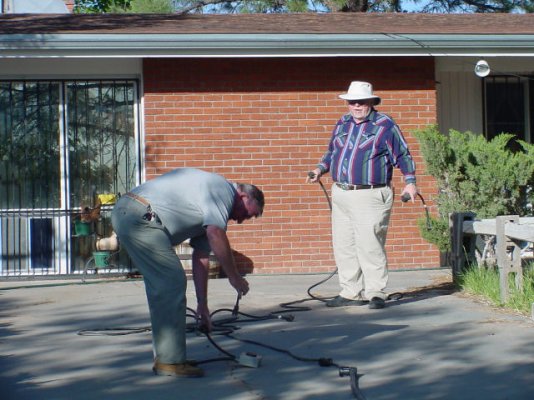irishranger2
Member
- Joined
- Jan 21, 2011
- Posts
- 11
I will shortly have a 5th wheel RV that will have 50 amp shore power cord. I want to have an electrician put a circut breaker in my house panel box that will fire up a plug for the RV. What kind or size circut breaker do I use? I don't want to plug the RV into something that is going to fry all the appliances. Thanks for the help. Mike

